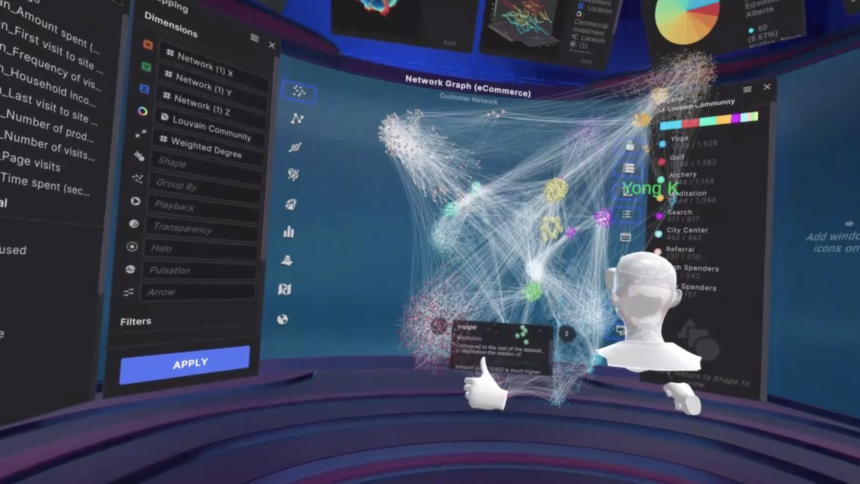NASA uses virtual reality and artificial intelligence to create a virtual data world
Image credit: NASA
Please enable JavaScript to view the article content. Please enable JavaScript in your browser and reload this page.
NASA uses virtual reality and artificial intelligence to better understand complex data - the future of data analytics?
As part of its data visualization research, NASA is conducting virtual and mixed reality experiments at its Jet Propulsion Laboratory (JPL) in southern California. The goal is to improve the analysis and interpretation of complex data, especially with regard to geological features of the size and distance of contact with Mars.
From Mars to Multidimensional Data Analysis
NASA has been instrumental in the history of virtual reality, pushing the technology forward in the early 1980s. Today, NASA still relies on virtual reality. For astronaut training, NASA partnered with Epic to develop a virtual reality simulation of Mars. But virtual reality could also help to better understand Mars.
Scott Davidoff, head of the Human Center Design Group at the Jet Propulsion Laboratory, and his team brought images of the "Curiosity" Mars rover into virtual reality, providing scientists with a more realistic view of the Martian landscape. “Seeing pictures on a screen is a completely different experience than walking in a canyon,” Davidoff said.
The distance and size of geological formations can be determined more quickly and accurately in virtual space than viewing images on a flat screen. This experience prompted the idea of displaying complex multidimensional data in a similar virtual reality environment.
NASA Creates Virtual Data World
“When you look at a 3D diagram of a network as a system, your perception changes,” Davidoff said. “We created a data world where analysts can look at any scientific or engineering problem and compare See patterns and correlations more clearly in the flat version."
Working with Ciro Donalek and George Djorgovski of the California Institute of Technology (Caltech), they developed software that uses 3D visualization to explore relationships between data points. In 2016, they co-founded Virtualitics Inc. in an advisory role with Davidoff.
Advanced Data Analytics Using Artificial Intelligence and Virtual Reality
Virtualitics' main product is software that combines artificial intelligence with 3D visualization. It allows users to see patterns and relationships in data much faster than traditional 2D charts.

Virtualitics software enables data to be visualized in virtual reality. | Image credit: Virtualitics Inc.
The software is compatible with several current VR headsets and can be used both on desktop and in VR. Currently, it is mainly used in banking, retail and medical research.
Data volumes from spreadsheets to large databases can be handled without moving the data.
Note: Links to online stores in articles may be so-called affiliate links. If you purchase through this link, MIXED will earn a commission from the provider. For you, there will be no change in price.
Related posts





